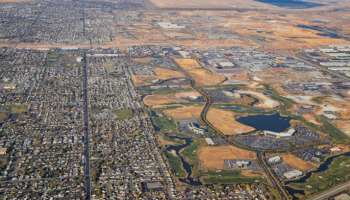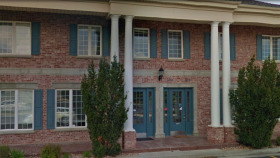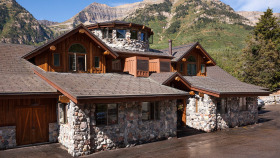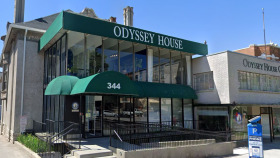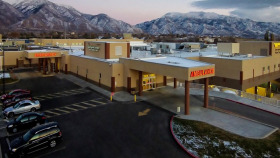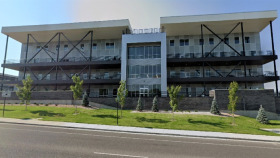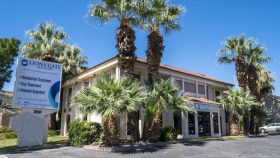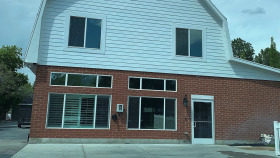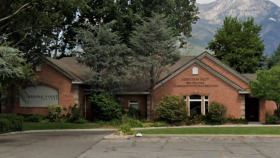Expert Insights
As a substance abuse counselor in an intensive outpatient program (IOP), I would refer patients to treatment for methamphetamine, heroin, and cocaine. A major concern or type of polysubstance use that I’d see was drinking alcohol while taking cocaine.
Polysubstance use is tricky to treat because I have to assess which drug is the most apparent underlying problem to address first. However, in the case of cocaine and alcohol together, my experience shows that both must be addressed simultaneously and with haste.
The Times-Independent of Moab has noted that drug overdose deaths in Grand County have more than doubled between 2019 and 2023 compared to the previous five years. A report from the Utah Office of the Medical Examiner shows that, on a larger state scale, Utah recorded 606 overdose deaths in 2023, which is the highest number on record and a 14.3% increase from the previous year.
~ Shaweta “Shay” Vasudeva, MA
How Much Does Drug Rehab Cost in Utah?
Utah is ranked 29th nationwide in terms of addiction treatment affordability, with an average cost of drug and alcohol rehab of $56,782 (without insurance).
- Medical detox is the most expensive, with an average cost of $139,988
- Long-term inpatient drug rehab in Utah costs an average of $50,107
- Outpatient addiction treatment in Utah costs an average of $8,326
- Outpatient methadone treatment is the most affordable, with an average cost of $7,397
Low-Cost & Free Drug Rehab Options in Utah
As of 2024, there were over 340 drug rehab facilities across the state of Utah. These facilities accept several payment methods. Of those treatment facilities, the following numbers reflect how many accept their respective payment methods:
There are 98 low cost or free addiction treatment centers in Utah. Their services include inpatient and outpatient treatment options, including intensive outpatient treatment, relapse prevention and aftercare programs.
Some of these treatment options also include medication assisted treatment where clients receive medications such as naltrexone, methadone and buprenorphine to ease withdrawal symptoms and decrease cravings.
Because many individuals experiencing alcohol and substance use disorder also have co occurring mental illnesses such as bipolar disorder, depression, anxiety, and PTSD, many addiction treatment centers in Utah offer mental health services as well.
Case management services also engage those facing homelessness, food insecurity, and unemployment by connecting clients with resources in their communities. Often, clients work with healthcare and insurance specialists to enroll in state funded health care plans such as Medicare or Medicaid.
Private Pay and Insurance
There are many major commercial health insurance carriers in the state of Utah, with eight insurers offering exchange plans on the Marketplace in 2024. Some commercial providers include:
Aetna
Aetna of Utah covers alcohol and substance use disorder treatment. Coverage and out of pocket expenses depend on the individual’s benefit plan. These services may include inpatient and outpatient treatment, online and in person counseling services, and case management. Through their Aetna 360 Behavioral Health Program, individuals can contact them and a care advocate will work on determining what the best treatment options are for each circumstance. They offer services by licensed healthcare providers.
Imperial Health Plan of the Southwest
Substance Use Disorder treatment is a covered benefit as per the Affordable Care Act (ACA). The details of coverage depends on which plan an individual has chosen. Out of pocket expenses vary. Individuals will need to contact the insurance provider to determine what those costs will be and which type of services are available to them.
Cigna
Alcohol and Substance Use Disorder treatment is a covered benefit with Cigna. These services may include inpatient and outpatient treatment options, counseling and case management. The covered services are based on the individual’s benefit plan and may need prior authorization.
Individuals should check their benefits plan or call the insurance company to determine coverage and what out-of-pocket expenses will be.
University of Utah Health Plans
The University of Utah Health Plans covers alcohol and substance use disorder treatment. Their mental health benefits are managed through Huntsman Mental Health Institute. Services include inpatient and outpatient treatment options, medication assisted treatment, counseling and case management services.
The coverage and amount of out of pocket expenses depend on the individual’s plan. Individuals should contact their insurance provider to determine network provider services and discuss treatment costs.
Select Health
Alcohol and substance use disorder treatment is a covered benefit with Select Health of Utah. They offer care management services which assists individuals with determining what type of treatment options are covered benefits, find in-network providers and determine out of pocket expenses.
Prior authorization is needed for most services. Individuals need to work with their insurance provider to find what treatment options best suit their needs.
Medicaid
Utah provides health insurance coverage for residents who meet certain criteria such as income level, age,residency and certain medical conditions. These Medicaid plans cover inpatient and outpatient substance use disorder treatment services at facilities that accept this type of insurance.
Because Utah has a medicaid system that offers individuals different types of benefit plans, for example some purchase plans on the marketplace and pay a fee for service, individuals need to check with their provider to determine what are covered services.
Medicare
Medicare provides insurance coverage for individuals over the age of 65 and in some cases individuals with disabilities and certain disorders. Medicare Part A pays for inpatient substance abuse treatment.
Clients are required to pay the same co-pays they would be charged for any other type of inpatient hospitalization. For those with Medicare Part B, outpatient substance abuse treatment services from a clinic or hospital outpatient department are covered.
Military Insurance
TRICARE and VA benefits are accepted at participating providers throughout the state of Illinois. For those with alcohol and substance use disorders, the Veterans Administration offers inpatient and outpatient services at their clinics and hospitals at no cost.
Tribal Funding/Programs
All individuals of Native American or Alaska Native descent are eligible for health care and Medicaid through the Indian Health Service (IHS). Alcohol and substance use disorder treatment are covered services.
Other Low Cost Options
For those individuals without commercial insurance, government sponsored insurance, or insurance through military service, some providers will accept sliding scale payment options, no fee for service or financial aid. Clients will need to speak with their service providers to find out what options are available to them.
Resources
- Substance Abuse and Mental Health Services Administration. (2021). State Data Tables and Reports from the 2019-2020 NSDUH
- Utah Department of Human Services. (2021). 2021 Student Health And Risk Prevention Needs Assessment Survey
- Utah Department of Health. (2021). Substance Use Disorder
- Project, Marijuana Policy. “Utah.” MPP, www.mpp.org/states/utah/
- “Substance Use Disorder.” Substance Use and Mental Health, sumh.utah.gov/services/treatment/substance-use-disorder/
- “Utah Support Advocates for Recovery Awareness.” USARA, www.myusara.com/




